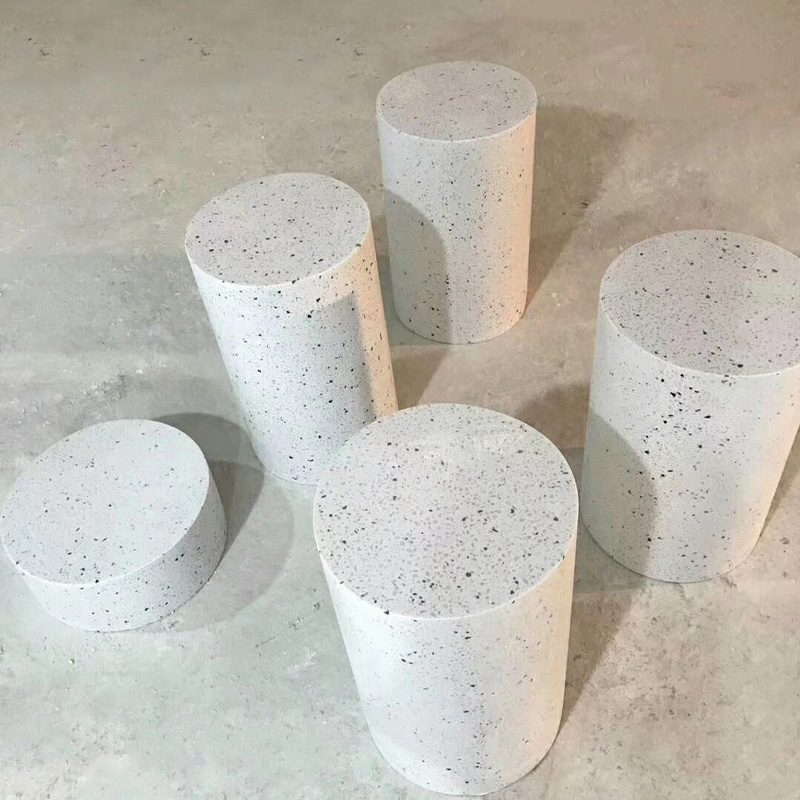
Solid Surface Countertops, including Artificial Stone Benchtops, have become a popular choice for kitchens, bathrooms, and commercial spaces due to their durability, versatility, and aesthetic appeal. These countertops are made from a blend of natural minerals and acrylic or polyester resins, which give them their smooth, non-porous surface. The manufacturing process of Solid Surface Tops involves several steps, from raw material selection to the final fabrication and customization, ensuring each surface meets high standards of quality and design.

The first step in the production of Solid Surface Countertops is the selection of raw materials. The primary components of Solid Surface Materials include:
Alumina Trihydrate (ATH): A refined mineral derived from bauxite ore, ATH gives Solid Surface Tops their solid structure and durability.
Resins: These are typically acrylic or polyester resins that bind the minerals together, providing the material with flexibility, impact resistance, and its characteristic non-porous surface.
Colorants and Additives: To create custom designs and colors, pigments and additives are mixed into the material. These can include natural pigments, recycled materials, or even glitters and chips to create unique patterns.
The careful selection and blending of these materials ensure that the final product is both strong and aesthetically pleasing.
Once the raw materials are selected, the next step is mixing. The Artificial Stone Fabrication process involves combining the alumina trihydrate with the resin and other additives to create a homogenous blend. This mixture is then poured into molds to form sheets or slabs of Solid Surface Tops.
During the molding process, the mixture is poured into large molds that shape the material into large, flat sheets or specific countertop shapes. These molds are often made of steel, and the mixture is carefully smoothed to ensure an even distribution. The material is then allowed to cure in a controlled environment to achieve the desired hardness and strength.
After the material has hardened, the next step is cutting and shaping. The Solid Surface Sheets are removed from the molds and cut into the required dimensions for the countertop. This is typically done using large industrial saws or water jet cutters for precise and clean cuts.
Artificial Stone Benchtops can be cut into a variety of shapes, including straight edges, curves, or custom designs. The precision during this stage ensures that the countertops will fit perfectly in their intended space, whether for a kitchen, bathroom, or commercial installation.
After cutting, the Solid Surface Top is then sanded and polished. This step smooths the surface and prepares it for the finishing touches. Using progressively finer grits of sandpaper or specialized machines, the surface is smoothed to remove any rough edges or blemishes. The sanding process also helps to bring out the natural sheen of the material.
Polishing is the final touch that enhances the gloss of the Solid Surface Countertops. During this stage, the countertop is polished to a smooth, reflective finish, which not only adds to its aesthetic appeal but also helps protect the surface from stains and scratches.
One of the most attractive features of Solid Surface Tops is their ability to be customized. Manufacturers can create Solid Surface Countertops in virtually any color, pattern, or texture. Customization is an integral part of the production process and involves adding unique design elements such as:
Color Options: Solid surface materials can be produced in a wide range of colors, from solid shades to intricate patterns that resemble natural stone or marble.
Inlays and Embedded Materials: Decorative elements like glass chips, shells, or metallic particles can be embedded into the surface for a more unique, custom look.
Seamless Designs: One of the hallmarks of Solid Surface Countertops is their ability to be fabricated without visible seams. This provides a smooth, continuous surface ideal for kitchens and bathrooms, where hygiene and aesthetics are crucial.
Custom design also includes specialized edge treatments. Manufacturers can offer a variety of edge profiles, from straight edges to more elaborate designs like bullnose, ogee, or bevel edges.
Once the countertop has been cut, polished, and customized, it is ready for fabrication and installation. At this stage, manufacturers carefully inspect the surface for any defects or imperfections. If necessary, additional touch-ups or corrections are made.
The final step is the installation of the Solid Surface Countertops in the designated space. Professional installers carefully fit the countertop to ensure it aligns perfectly with the surrounding cabinetry or fixtures. Since solid surface tops are lightweight and can be cut to exact specifications, installation is often faster and easier compared to other countertop materials like granite or marble.
The unique properties of Solid Surface Tops make them an excellent choice for a variety of applications. Some of the key advantages include:
Durability: Solid surface countertops are resistant to stains, scratches, and impacts. Their non-porous nature makes them highly resistant to bacteria, making them ideal for kitchens and bathrooms.
Ease of Maintenance: Unlike natural stone surfaces, solid surface tops do not require sealing. They are easy to clean with just soap and water and can be repaired with minimal effort.
Customization: As mentioned, solid surface materials are highly customizable, allowing designers to create unique countertops that match the aesthetic of any space.
Seamless Appearance: The ability to create seamless installations is a major advantage, especially in modern, minimalist designs.
The Solid Surface Fabrication process involves multiple steps, from raw material selection to final installation. By combining cutting-edge technology with customizable options, manufacturers are able to produce durable, beautiful Solid Surface Countertops that meet the unique needs of homeowners and businesses alike. Whether it’s a simple design or a complex custom pattern, Artificial Stone Benchtops offer both practicality and beauty, making them a top choice in modern interiors.